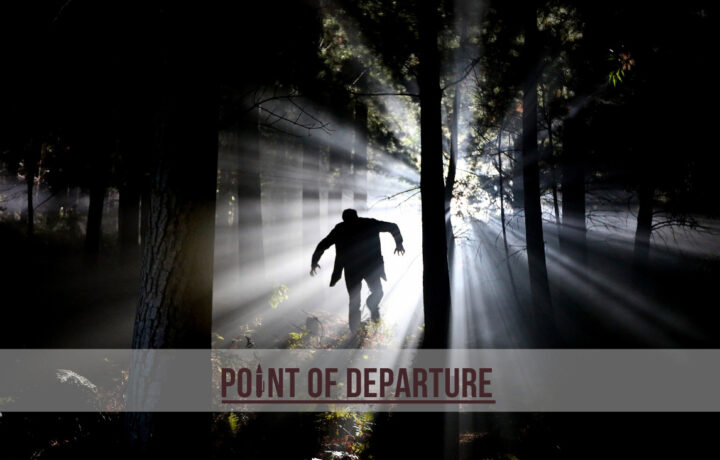We’ve all been there. You’re between meetings, maybe on the way to lunch, or even looking forward to a quick break… and you see someone hovering near your office. You recognize them immediately and quickly slip into escape and evade mode, trying to avoid being seen while making your way in a different direction entirely. But they catch your eye and move to cut you off.
It’s not that they’re necessarily bad people. Usually, they’re not. They’re often friends, family members, neighbors, or even work colleagues. But, like a modern-day Nosferatu, they suck the life out of you.
Whether intentionally or not, they gravitate toward others for the fulfillment they lack. They’re often very friendly, even overly so. You open the door to them naturally, only to regret it later. They consume your time and attention with a boundless thirst, leaving you emotionally—and often physically—exhausted after each encounter. Even now, you’re taking a moment to pause and putting a face and name to the energy vampire in your life. We all know the type. They walk among us.
FROM THE SHADOWS
Energy vampires are often charismatic and use their charms to both disguise their narcissistic tendencies and forge a parasitic relationship, feeding on your willingness to listen to them. The more empathetic your personality, the greater your vulnerability. They’re almost always wrapped up in some kind of drama that has been thrust upon them, mired in personal or professional catastrophe, and never responsible. They just want to talk.
There are several types of energy vampires and recognizing them is the first step in defending against them. The victim, or martyr, vampires, live their lives in a perpetual state of conflict with the rest of the world, using blame, manipulation, and emotional blackmail to assuage their low self-esteem. They twist your empathy into guilt, then consume your pity with an unquenchable thirst. The narcissist, on the other hand, exists in a world where everyone and everything is about them. They need to be the center of attention, to be praised at every turn, to have their own inflated self-worth constantly validated. They seduce you with their charms, feeding off your attention and compliments until you’re drained. The diva is a form of energy vampire that consistently blankets themselves in a shroud of drama. Everything about them is melodramatic. They seek out crisis to fuel the exaggerated sense of self-importance, inserting themselves into other people’s problems as a way to escape their own. They are as addicted to negative emotions as the energy they suck from you trying to pull you into their drama. The manipulator is a vampire looking for an edge, trying to gain an advantage by co-opting you. They are rarely honest, always have a hidden agenda, and never say what they truly mean. You are always on edge in the presence of the manipulator, expending an inordinate amount of energy trying to read between the lines. They don’t quit until you agree to their terms, at which point you’re usually dead already. Finally, the innocent vampire is someone who tends toward helplessness, who just can’t ever seem to get by without the help of others. They aren’t malicious in any form but focus their needs on the same people all of the time. And if that’s you, being that constant “phone-a-friend” personality leaves you with little energy to sustain your own needs.
GARLIC CLOVES AND WOODEN STAKES
Relationships with energy vampires are typically toxic. They’re essentially co-dependent in nature, demanding that you bend your schedule to their needs. They are sources of chronic stress, preying on your sense of empathy or compassion to fuel their own emotional needs. They leave you drained, exhausted, and often derailed. And, unlike the traditional vampires of lore, garlic cloves and wooden stakes aren’t going to protect you.
First, you have to set boundaries. This can be challenging, because energy vampires aren’t usually dissuaded by boundaries. If you close your door, they’ll knock. If someone else is in your office, they’ll interrupt. If you’re walking into the restroom, they’ll follow. They’ll call or text you after hours, email you before sunrise, and consider weekends just another day where people respond to their whims.
Second, you have to demand space. Don’t just ask for it. Don’t be overly polite about it. In essence, you’re reinforcing those boundaries. If you don’t demand the space, you won’t get it. They’ll walk all over your boundaries and you in the process.
Third, be assertive. An energy vampire gains an advantage by dominating the conversation and you in the process. When they try to drive the discussion or interrupt you, give them the Heisman. It’s your time, it’s your energy. Don’t allow them to sink their fangs into you. Stiff arm them and retake control of the situation. Do that enough times and they’ll get the message.
Finally, learn to say no. Energy vampires count on you being too polite to say no. Boundaries are meaningless if you don’t hold firm to them. Treat them like you would the random solicitor who shows up at your door on a Saturday morning. Don’t let them interrupt you. Don’t respond to an after-hours call or text. And under no circumstances should you allow them to follow you into the restroom. Just say no.
The fact is that we’re never going to eradicate energy vampires from our world. So you can either go through life having the life sucked out of you at every turn or you can stop them in their tracks. It’s still going to be a battle of the wills, but if you take a few steps to protect yourself, you might keep them in the shadows where they belong.



